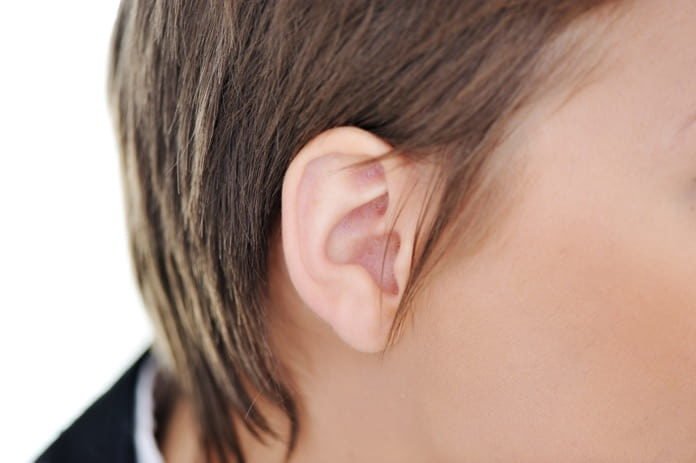Auriculotherapy is a traditional Chinese medicine that involves stimulating parts of the ear. A recent study investigated if auriculotherapy could affect the levels of various biomarkers in the blood of individuals with knee osteoarthritis.
Osteoarthritis is a chronic, painful disease of the joints. It occurs when the protective cartilage of the joints is worn away. There is no known cure for this condition. Treatment typically includes a combination of physical therapy or exercise, and pain-killing and anti-inflammatory drugs. With no cure, some people turn to alternative medicine, such as traditional Chinese practices such as acupuncture or the less well-known procedure known as auriculotherapy.
In auriculotherapy, needles or mustard seeds are used to stimulate specific points on the outer ear. Auriculotherapy advocates claim that this can then affect other parts of the body. Some studies have suggested that auriculotherapy can alter the levels of biomarkers of health and disease, such as cholesterol or glycated hemoglobin.
A group of Brazilian and Chinese researchers recently investigated if auriculotherapy could affect blood biomarkers in patients with osteoarthritis of the knee. Their results were recently published in the Journal of Acupuncture and Meridian Studies.
Comparing auriculotherapy to a “sham” auriculotherapy procedure
The researchers recruited 23 participants with knee osteoarthritis. They were 62 years old on average, mostly female, and all were obese. Participants were assigned to either the auriculotherapy group or a control group that received a “sham” auriculotherapy procedure. The study was five weeks long. Blood samples were taken at the beginning and end of the study.
For the auriculotherapy procedure, every week, mustard seeds were affixed to the appropriate locations on the outer ear with adhesive tape. Each week the study participants underwent a 10-minute session with an auriculotherapy professional who applied pressure to the seeds. The participants were asked to apply pressure to the tape and seeds at least three times a day and to remove the tape the night before the next session. For the sham procedure, tape without seeds was applied to the earlobe.
Some blood biomarkers were changed after auriculotherapy
The researchers measured the levels of 36 separate blood biomarkers at the beginning and end of the study. The levels of some biomarkers decreased in participants who had received the true auriculotherapy procedure. These altered biomarkers were bilirubin, aspartate aminotransferase (AST), triglycerides and cholesterol in very low-density lipoproteins. The remaining biomarkers were not affected. There were no changes to any biomarkers in the sham auriculotherapy group.
It is not clear how auriculotherapy could affect knee osteoarthritis
High levels of cholesterol and triglycerides can be associated with obesity. Therefore decreasing the levels of these biomarkers could potentially be helpful to the obese individuals in this study. However, none of the changed biomarkers are known to be directly related to osteoarthritis. In fact, the study did not measure any biomarkers that are directly related to osteoarthritis. Furthermore, the researchers did not measure the severity of osteoarthritis before or after the study procedure. This means that they could not determine if auriculotherapy had any effect on knee osteoarthritis in the study participants.
Other limitations of the study include the small number of participants and the fact that study participants could easily determine if they were in the true auriculotherapy or sham group. Despite these issues, the study’s authors point out that it demonstrated that auriculotherapy had measurable effects. They call for further study on the potential use of auriculotherapy for individuals with osteoarthritis.
Written by Bryan Hughes, PhD
Reference: Costa-Cavalcanti, R. G., da Cunha de Sá-Caputo, D., Moreira-Marconi, E., Ribeiro Kütter, C., Brandão-Sobrinho-Neto, S., Liane Paineiras-Domingos, L., Moura-Fernandes, M. C., da Costa, J. M. C., de Morais Carmo, J. M., Nogueira-Neto, J. F., Chang, S. & Bernardo-Filho, M. Effect of Auriculotherapy on the Plasma Concentration of Biomarkers in Individuals with Knee Osteoarthritis. Journal of Acupuncture and Meridian Studies. In Press (2018). https://www.jams-kpi.com/article/S2005-2901(17)30233-9/fulltext



